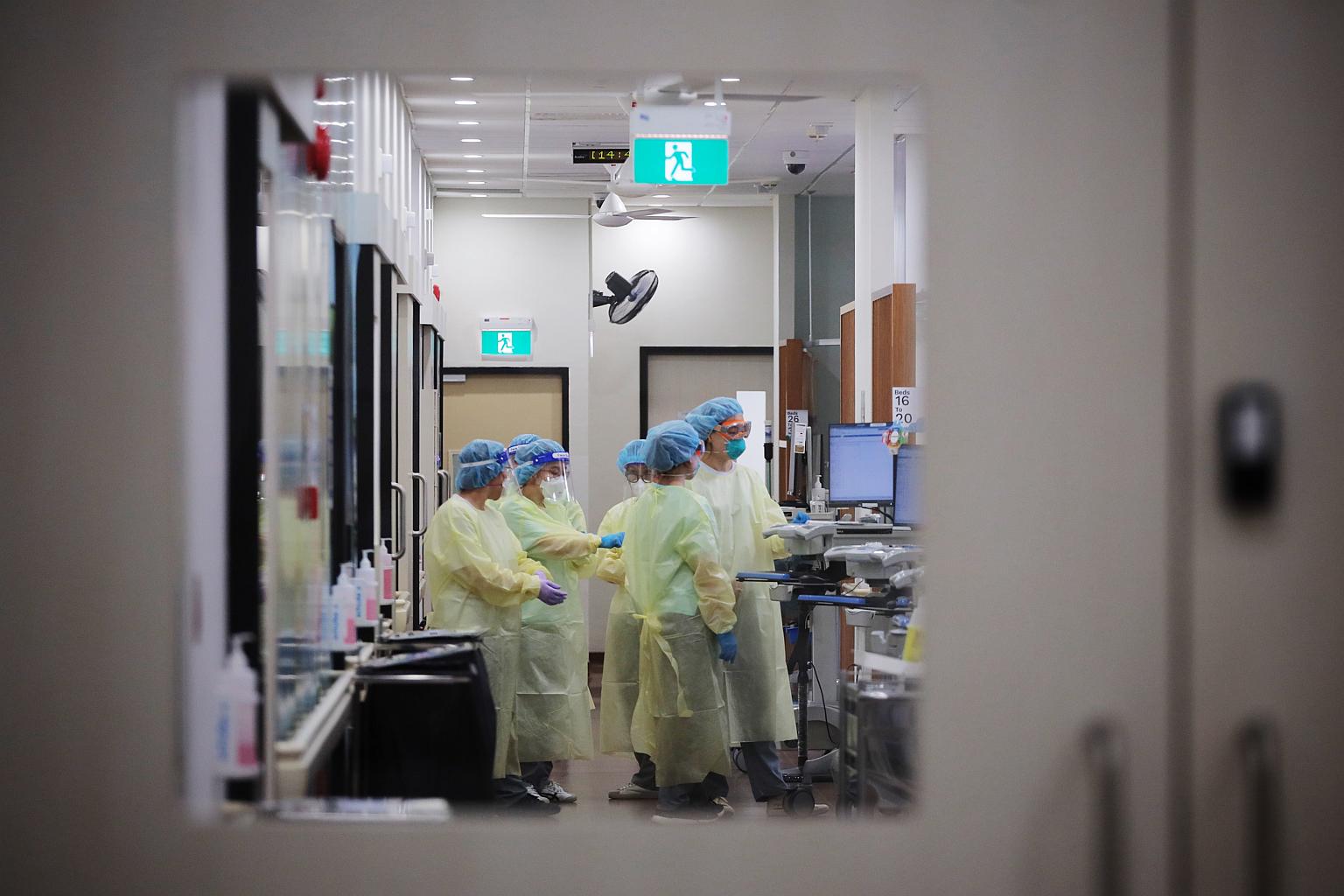Singapore stays on course to live with Covid-19 but faces three uncertainties
Sign up now: Get ST's newsletters delivered to your inbox

The rate of increase of daily infection numbers, the fatality rate and the burden on hospital resources are the uncertainties facing Singapore, said Health Minister Ong Ye Kung.
PHOTO: ST FILE
Follow topic:
SINGAPORE - Singapore is staying on course to transition to a new normal of living with Covid-19 but faces three uncertainties: the rate of increase of daily infection numbers, the fatality rate and the burden on hospital resources, said Health Minister Ong Ye Kung.
Providing an update on the state of the pandemic here on Friday (Sept 24), Mr Ong said that Singapore needs to adjust its plans depending on what the Delta Covid-19 variant throws at the nation.
"It is the only way for us to recover from Covid-19 as a people, as a nation," he said at a virtual press conference of the multi-ministry task force tackling Covid-19 here.
"We may seem like we are trailing some European countries, which are or have reopened and living lives quite normally. But remember they paid a huge price in human lives, mostly last year."
He added that Singapore will do whatever it can to minimise death from Covid-19, and that it is also the reason why Singapore is opening up only after it has vaccinated the vast majority of its population.
"So we will ride out this wave differently, safely and successfully."
Currently, Covid-19 cases are in their fourth doubling cycle. It is still unclear if the daily infection numbers will eventually turn the corner, even though there are some signs of a slower rate of increase, he said.
"So how the trajectory will turn out in the coming weeks will be a big uncertainty... Looking at the current momentum, daily infection numbers will cross 1,600 cases a day... But no transmission wave lasts forever," he said.
If the doubling of cases continues, Singapore could see 3,200 cases a day next month, he added.
Second, it is unclear how many more patients will fall seriously ill and die.
This number is at a much lower level due to the protective effect of vaccinations. A total of 23 intensive care unit (ICU) beds have been occupied.
The situation so far remains stable, but ICU numbers lag infection numbers by around 10 to 14 days, Mr Ong said.
Third, each daily increase in infection number is a big absolute number and will add pressure on Singapore's healthcare system, he said.
"The Delta variant doesn't follow our script," he said, noting that this current wave of infection came faster than expected, and happened before the MOH's ramped-up plans were fully implemented.
To cope with the increase in cases, the number of Covid-19 hospital beds have increased from 1,000 to 1,600.
"But it comes at the expense of some degradation of normal services," he said.
To reduce the strain on hospital resources, the MOH commissioned a new class of facility for closer monitoring and management of patients with chronic illnesses.
Singapore's first Covid-19 stepped-up community treatment facility in Tampines opened on Thursday, with around 300 community treatment beds. Another 200 beds will also be set aside at Sengkang General Hospital for this purpose.
Separately, Singapore has also rolled out a home recovery programme. More than 40 per cent of daily cases are put on this programme today.
This care management model for Covid-19 recovery has been the default recovery setting for suitable patients from Aug 30, when the pilot first started. This model also applies to those aged between 12 and 69, are fully vaccinated and do not have severe comorbidities or illnesses.
Without the home recovery programme, the healthcare system would have been overwhelmed, Mr Ong said.

